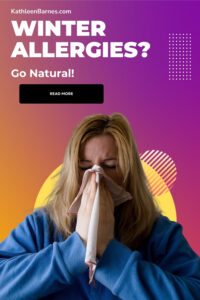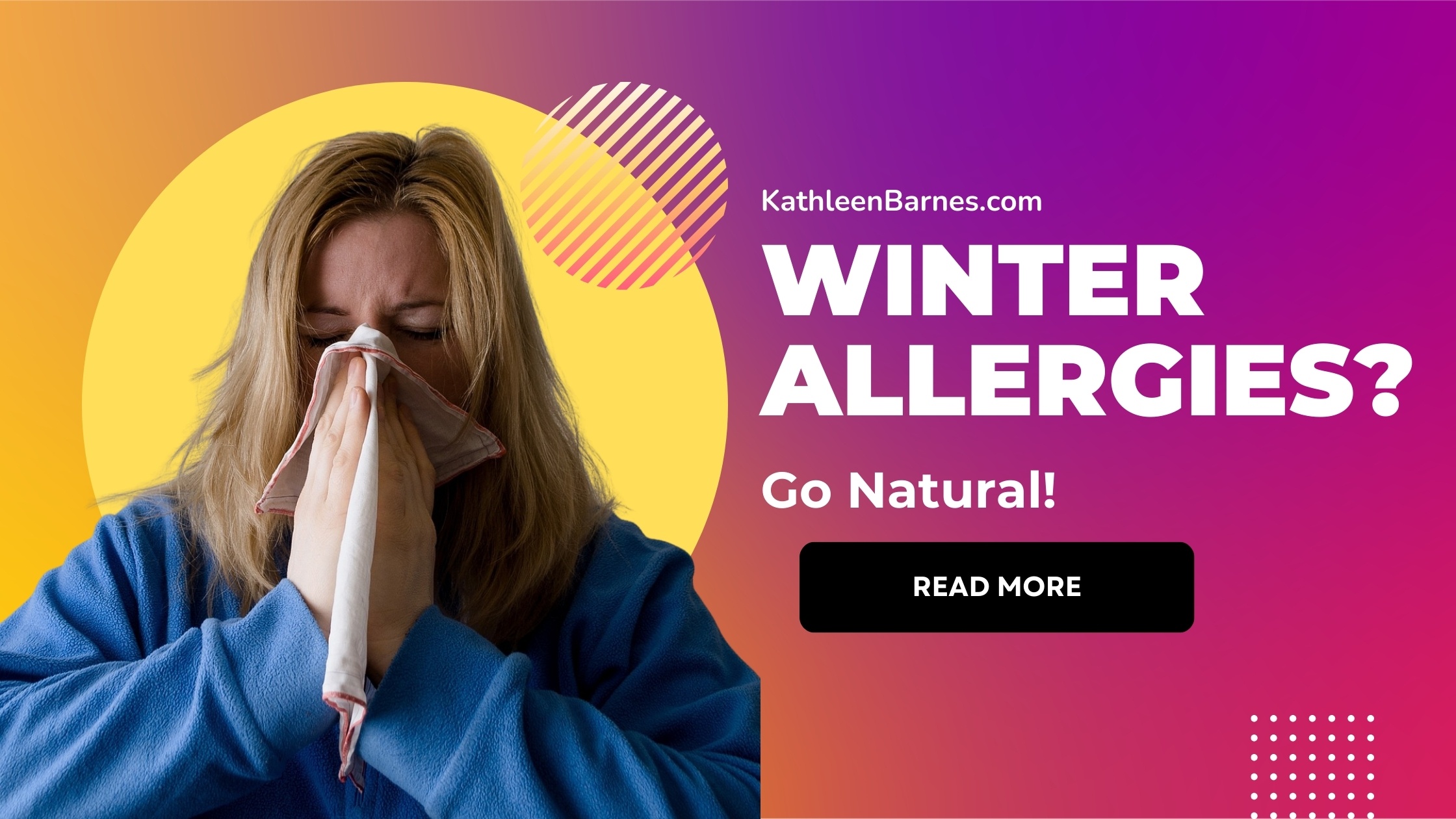It’s not spring? Really? We’re battening down the hatches for an upcoming winter storm, but my allergies are kicking in like crazy. This is the first year I’ve had trouble with winter allergies beyond the pollen season.
allergies are kicking in like crazy. This is the first year I’ve had trouble with winter allergies beyond the pollen season.
But then, pollen isn’t the only cause of the sniffling, sneezing, coughing and itchy, watery eyes that go with allergies.
Dust, mold, mildew and pet dander are the biggest triggers for winter allergies, especially when they’re concentrated in a closed house.
What are winter allergies?
Basically, an allergic reaction is your body’s immune system freaking out over something that is harmless, like perhaps some dust you stirred up cleaning out your closet. That overreaction causes your body to release histamine to fight off those “foreign” invaders like dust and mold, resulting in that seemingly endless hacking, sneezing and coughing. Histamine sends out inflammatory substances to fight the perceived “enemy.”
And here’s some bad news: Allergies, unlike colds that last for a few days, maybe a couple of weeks, can go on for weeks, months, even years, as long as the triggers are present.
More bad news: It seems that this inappropriate immune response increases with age. At least that has been true for me.
Hang on–it’s not at all bad news!
What can we do to fight it?
Limiting exposure is the easiest answer.
-
You’re allergic to dust mites? Buy a mattress cover to protect your bed and keep them out; well, most of them, that is. If it’s really bad, avoid stirring up dust and put off your “spring” house cleaning until spring.
-
Animal dander may be a cause of perennial allergies. No matter how much you love your furry friends, you’ll be better off if you keep cats and dogs out of your bedroom and brush and bathe them regularly, wearing a mask, if necessary.
-
If you know you have a mold or mildew problem, it may be necessary to bring on a professional to clean it up.
-
HEPA filter vacuum cleaners help, too.
Controlling your home environment is a good first step; however, for the most part it’s not enough to totally control the symptoms, so you’ll to take further steps.
Wash your nasal passages
Cleaning your nasal passages and sinuses with salt water eradicates the allergy triggers that are making your life miserable, maybe for a week or two or for much longer. Washing out the excess mucus and different kinds of allergy triggers is like cleaning the filters on your air conditioner. You’ll have clean air if your nasal filters are clean.
It’s logical, if you want the best quality of air coming into your lungs, your nasal passages should be clean. It’s important to use the right ingredients. Add a teaspoon of unrefined sea salt (it should have a pink or brown color) to a cup of warm boiled or distilled water to avoid irritating the sensitive mucus membranes.
I was taught the Indian practice of neti more than 40 years ago, long before those cute little neti pots were commercially available in the U.S. I simply learned to drink warm salt water through my nose straight out of a glass and spit it out. Yes, I admit, it takes a bit of practice, but either way works very well.
Eat onions and garlic
The quercetin and other sulfurous nutrients in onions and garlic that are natural anti-histamines. This is a long-term remedy that may take 4 to 6 weeks to become effective, but eating a bulb of garlic or a handful of raw onions in your salad is a good idea for so many reasons, why not? Worried about offending your friends because of stinky breath? Swish a little lemon juice in water or eat an apple, both of which have sulfur-neutralizing properties.
An additional tip: There isn’t much science to back this up, but many people swear by eating local honey. This means honey that is produced not more than a handful of miles from your home on the theory that the pollens passing through the bees’ bodies help develop antigens.
Stinging nettle tea and butterbur are also excellent natural anti-histamines.
Also, be sure to drink plenty of water to help flush out those toxins.
Aromatherapy rocks!
Peppermint, frankincense and eucalyptus oils are excellent ways to clean your bronchial passages. I’ve got my diffuser running right know, giving me a bit of a frankincense boost. In fact, I haven’t even had a little tickle of that annoying cough since I started writing this piece an hour or so ago! Essential oils can irritate your skin, so please add a carrier oil like jojoba, coconut or vitamin E oil to dilute them.
Take care with your immune system:
Colds are viral infections that signal a weakened immune system. Allergies are signs of an impaired immune system that is overreacting to normal substances in your environment, so the treatment should be very different.
Grabbing a handful of immune stimulants like vitamin C or elderberry at the first sign of a sniffle might work if it’s a cold or flu, but they will kick your already hyper immune system into overdrive if allergies are causing your symptoms.
How do you know which it is? Colds and flu are usually characterized by unique symptoms including body aches, fever, sore throat, productive (wet) coughs and chills.
These symptoms are almost never present with allergies, so it’s pretty easy to self-diagnose to determine what’s ailing you. Yet there can be overlap in symptoms, for example with a runny nose or cough, which be an indicator of either a cold or an allergy.
And in this world of Covid, if you’re in doubt, take an at-home Covid test to be sure before you expose anyone else.







